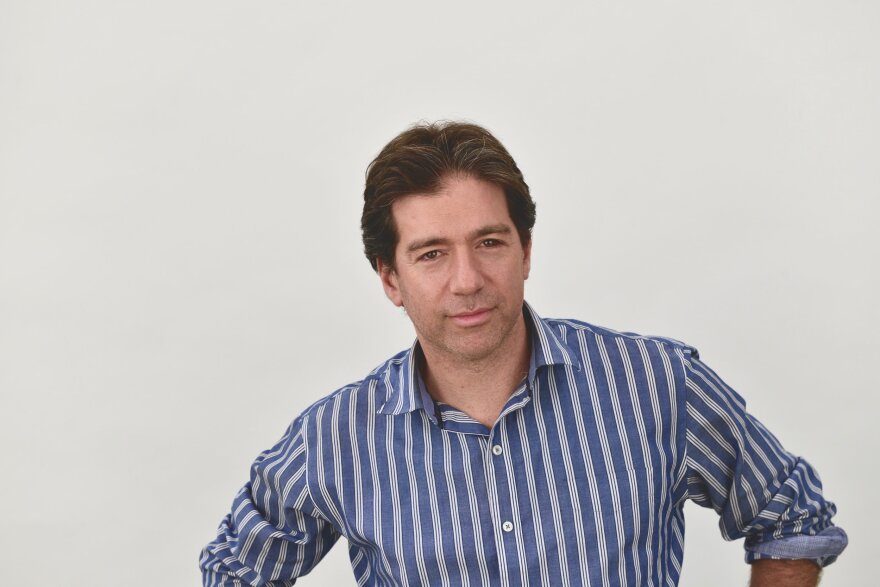Originating in the Middle Ages in the form of Gregorian chant, the mass, traditionally serving a necessary function for church services, has evolved and expanded over the centuries to a concert work serving as a vehicle for composers’ musical expression. Some of the most iconic works in the classical repertory have come in the form of the mass, such as Bach’s Mass in B minor, Mozart’s Requiem, Beethoven’s Missa Solemnis, Brahms’s Ein deutsches Requiem; the list goes on.
But since the 20th century, reinventing the mass has been something of a compositional rite of passage. Benjamin Britten’s War Requiem intersperses English poetry with the traditional text of the Latin requiem mass, pitting its liturgical nature against the horrors of war as expressed by war poet Wilfred Owen. Leonard Bernstein re-contextualized his Mass into a musical theater piece, juxtaposing a variety of genres and musical forces, including a full orchestra, rock band, and marching band, to name a few.
As different as the many, many masses that have been composed through the centuries are from one another, one key component ties them all together — their connection to the Christian faith. In the American composer David Shapiro’s Sumptuous Planet mass, brought to life here by the truly exceptional Philadelphia-based choir The Crossing led by conductor Donald Nally, that connection is preserved, yet subverted in a glorious polyphonic ode to humanity and the Earth (with a capital E). Interspersing quotes from renowned evolutionary biologist and staunch atheist Richard Dawkins, the work also opens with an incredibly apt quote by acclaimed theoretical physicist Richard Feynman, “Is no one inspired by our present picture of the universe? This value of science remains unsung by singers . . . This is not yet a scientific age.“

There is perhaps no ensemble better suited for such an undertaking, because reinvention is something of a familiarity to Donald Nally and The Crossing. With 32 albums and over 150 commissions (and counting!), the widely acclaimed choral ensemble seems to have an insatiable hunger for brand new works that challenge what's come before.
While the work is modeled after a traditional mass, it bucks any overt reference to Christianity in its content — even its Latin text is a translation of Dawkins’s words. The higher power this work serves is instead our “sumptuous planet” itself. But individual movements mirror yet distort the function of a traditional mass; per Shapiro:
Sumptuous Planet starts with a setting of physicist Richard Feynman’s lament that ‘the value of science remains unsung by singers. This is not yet a scientific age.’ From there, the piece proceeds to glorify, with music, an unvarnished, open-eyed way of looking at the world as it really is, without dressing it up with myths or miracle stories. In other words, the concept is that before the piece begins, we do not yet live in a scientific age. By the end, we do.
Each movement takes a word or an idea from the Christian Mass, and sets a text by Dawkins that touches on that same concept from a very different perspective. Gloria becomes: Nature is a magnificent structure; Credo: I believe in an orderly universe indifferent to human preoccupations; Sanctus: We are all atheists about most. . . gods — some of us go one god further.David Shapiro
Shapiro’s music remains in dutiful service of Dawkins’s surprisingly poetic words (not bad for a scientist!) throughout. Harmonies ripple, shimmer, and warp; dissonances collide as if they are gently bumping celestial bodies, inducing a sincere sense of awe when paired with its decidedly humanist text. Movement four, “Earth - Sumptuous Planet,” the compositional germ which started the idea of the mass, originally performed in 2016, is perhaps the most exceptional example of this:
After sleeping through a hundred million centuries we have finally opened our eyes on a sumptuous planet, sparkling with color, bountiful with life. Within decades we must close our eyes again.Richard Dawkins
Shapiro’s musical setting eerily matches Dawkins’s sentiment; the listener feels as if awakened from a deep sleep, brought in by a slow chord at the beginning of the piece, built voice by voice from the ground up. Shortly thereafter, Shapiro brings the listener across a brief but vibrant and colorful journey, with rapid changes in harmony and meter reflecting the chaotic beauty of the universe and the short moment humans have to experience it. At the end, Shapiro returns the listener to the sleep from which they started, recalling the original chord that was first heard; a return to entropy.
Shapiro’s compositional voice is direct and easily palatable - it is never complicated simply for the sake of being complicated, only ever serving to enhance the clarity and elevate the meaning behind a text never conceived to be sung (and serving it well). Brimming with musical ingenuity, clever text-setting, and gushing with a kaleidoscopic array of harmonic color, this work shatters Feynman’s adage – we are now firmly in an age where the value of science is sung by singers.



